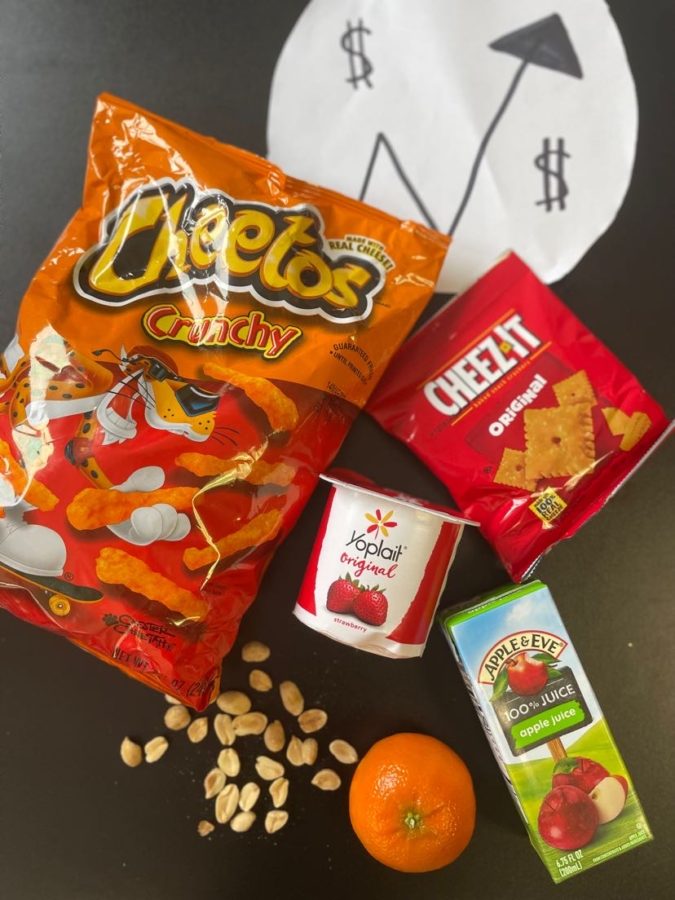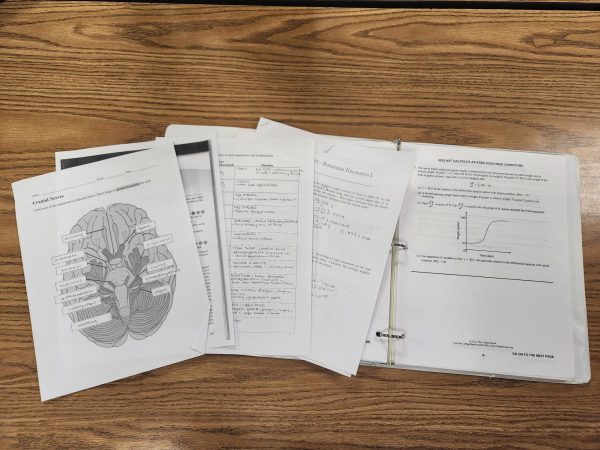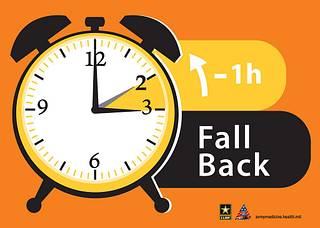Feeding families by combating inflation
Image depicts common household food items’ price rising due to effects of inflation.
A trip to the grocery store can take a chunk out of an American’s paycheck. Grocery prices were up 11.8% in December, compared to 2021.
The days when people could buy a dozen eggs for $1.50 or a gallon of milk for under $3 are over. Nearly every food group has gone up in price. Eggs have increased by 138%, butter by 38.5%, flour by 34.5% and spaghetti noodles by 31.3%, according to TIME magazine.
About 90% of Americans are concerned about food prices, according to a survey conducted by The Harris Poll on behalf of Alpha Foods. Although the government works to fight inflation, citizens can combat the issue themselves. Five to 10 percent of paychecks should find themselves in a savings account, or a grocery fund. Costs can be cut elsewhere; cancel unneccessary subscriptions, avoid dine-in restaurants and new clothes, carpool, etc.
Although the “better off” aren’t nearly as affected, the average American takes a hit.
Saving money is a good habit especially when it’s needed most.
The Biden-Harris administration plans to take action against inflation by repairing infrastructure, supply chains and manufacturing. They plan to bring together business, labor, federal and state governments to address supply chain bottlenecks at ports; helping more workers find good-paying jobs in the trucking industry; taking on unfair practices by global shipping companies and implementing the historic Bipartisan Infrastructure Law, which moves goods to the market faster at a cheaper price. The administration also plans to invest in the United States for critical goods that drove up inflation during the pandemic, according to whitehouse.gov.
Americans, let’s sacrifice nonessential goods and services to have money for high grocery prices. We ought to become better thinkers, spenders and doers.

Ryne is a second-year journalism student who loves to exercise, hike, and spend time with friends. Ryne enjoys writing sports and opinion for The Current.











